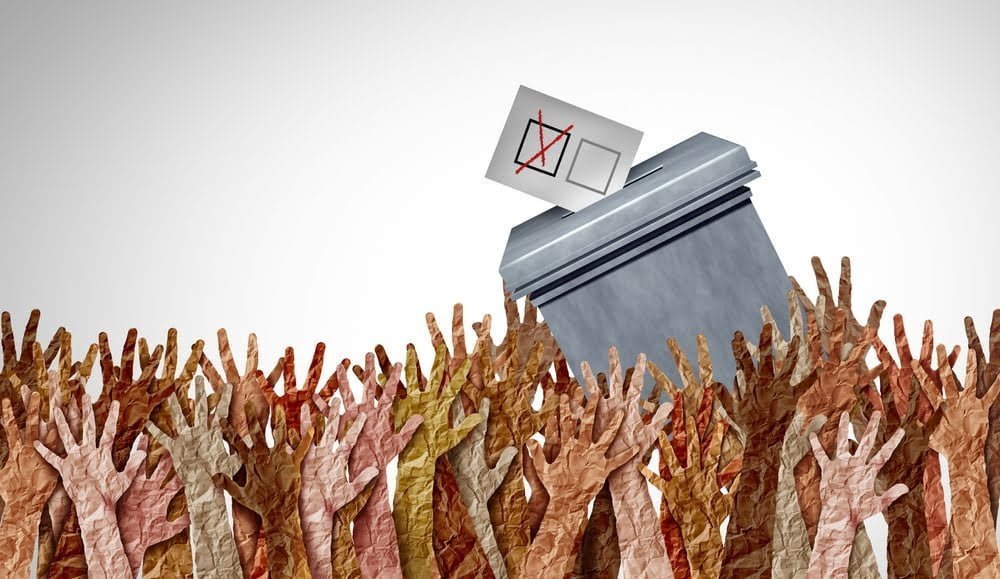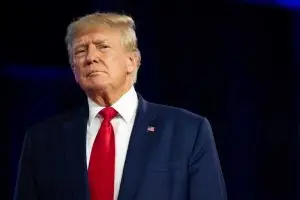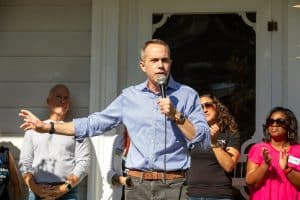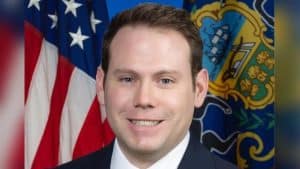Before the Progressive Era of politics that began in 1890, presidential candidates were selected by delegates in raucous party conventions. The delegates in attendance were often chosen by party bosses who bartered votes for power and financial gain.
Growing dissatisfaction with backroom deals led to a series of reforms designed to make the delegate and candidate selection processes more transparent and inclusive. Although primaries were introduced during the Progressive Era, it wasn’t until after the disastrous Democratic National Convention of 1968 that the movement toward primaries began to gain steam, with 14 states adopting primary elections. Today, almost all states hold presidential primaries, many on what is called Super Tuesday.
But … not all primaries are conducted in the same way. Primary rules vary state by state, but most fall under the category of closed, open, and semi-open. In open primaries, voter registration with a party is not a condition for participation. In a closed primary, voters must be registered as either Republican or Democratic to participate. In a semi-open primary, there are separate Republican and Democratic ballots, but Independent voters have the option to vote for either party.
Pennsylvania has traditionally held closed primary elections. However, there is growing pressure to switch to a more open format. This past October, The Pennsylvania House State Government Committee passed two identical bipartisan bills in support of semi-open primaries. Both bills are currently awaiting further action from the House.
Last week, the League of Women Voters of Bucks County held a presentation in support of the move toward open or semi-open primaries. Diana Dakey, LWV-PA member at large and part of the group’s Government and Policy Committee, explained how more open primaries could help ease the stranglehold the two party system has on American politics and lead to more voter participation.
She cited the change in voter affiliation as one of the key reasons to advocate for change. According to Dakey, the number of unaffiliated voters has increased rapidly in the last few years. She noted that from September to January of 2023, 35 percent of new voters were not affiliated with the party.
“If you are not included, you are excluded. And all of these independent voters are excluded in Pennsylvania.” she said.
READ: Not Your Father’s Republican Party?
There are roughly 1.2 million voters who are unaffiliated in Pennsylvania, including about 400,000 Pennsylvania veterans and nearly two-thirds of young adults who have no strong allegiance to a single political party.
Dakey, who also serves as Judge of Elections for Glenburn Township, worries that the current system disenfranchises many of these independent voters.
“We have low turnout in primaries. This means that we have a party base determining the primary winner. The party faithful will go and vote in the primary and then the primary winners who would be in the general election lack a true voter mandate, sometimes even from their own party,” she said.
Dakey noted that gerrymandering and demographics often lead to voters of one political affiliation being concentrated into each district, meaning that elections are effectively decided in the primary. She claims that prohibiting Independent voters from participating in the primary denies them any real voice in the General election.
Not everyone agrees.
Republicans on the House State Government Committee, including Rep. Brad Roae, voted against the bills, citing their opposition to allowing voters who are not members of a party to vote for that party’s nominees. Rep. Roae stated that county election offices could be overwhelmed by the need to make changes on short notice.
“Now counties are going to have to deal with training poll workers that the old system has done that somebody that’s not in a party can ask for a ballot to vote in that party’s primary,” Roae said.
READ: Pennsylvania Election Officials Launch Voter Education Effort Ahead of April 23 Presidential Primary
Despite Roae’s objections, Dakey insists that the legislation has wide bipartisan support. She encouraged Pennsylvanians who support more inclusive primaries to get involved.
She noted that there are several concrete steps voters can take to advocate for change.
“Contact Speaker McClinton to urge a floor vote on House Bill 979 and House Bill 976. Urge your state senator to become the co-sponsor of Senate Bill 400,” said Dakey. “Write letters to the Chair of the Senate State Government Committee, (Chris Dush) and emphasize that it’s time to open primaries to the over one million excluded voters.”







